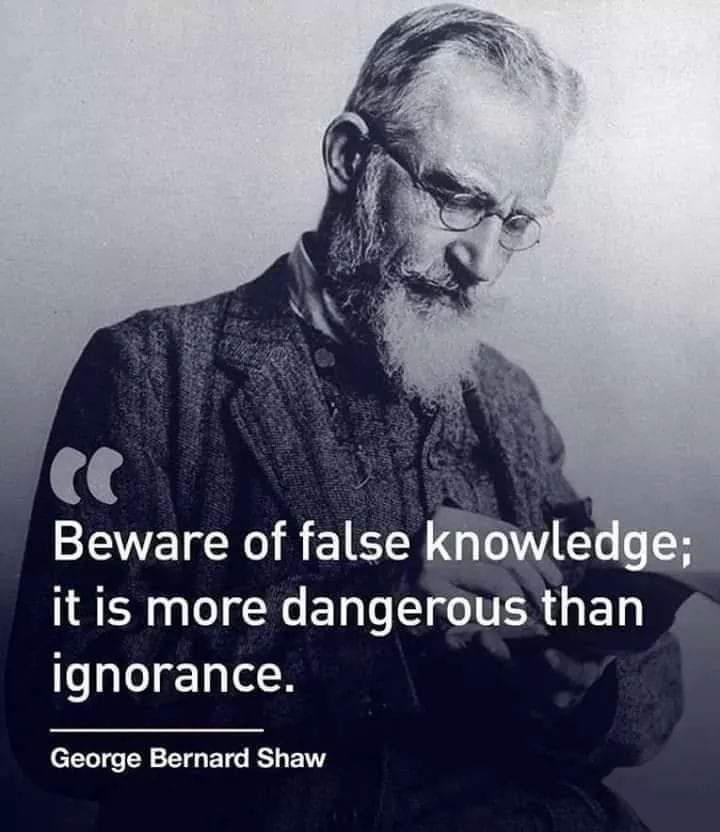"Beware of false knowledge; it is more dangerous than ignorance"
The quote in the picture by George Bernard Shaw, "Beware of false knowledge; it is more dangerous than ignorance," speaks to the profound impact that misinformation can have on individuals and society. In an era where information is readily accessible, the discernment between what is true and false is more crucial than ever.
False knowledge can lead to misguided actions, misplaced trust, and erroneous beliefs that can have far-reaching consequences. It can shape our decisions and our worldview, steering us away from truth and understanding. Conversely, recognizing one's ignorance can be the first step towards seeking true knowledge. It opens the door to inquiry, learning, and growth. Acknowledging ignorance is an act of humility and wisdom, an admission that there is always more to learn.
This statement serves as a powerful reminder of the value of critical thinking and the pursuit of authentic learning. It encourages us to question, to research, and to think deeply about the information we consume. By doing so, we become more informed citizens, capable of making decisions that are rooted in reality and truth.
In essence, Shaw's words are a call to intellectual vigilance. They inspire us to be cautious with the knowledge we accept and to be ever-curious about the world around us. It's a timeless message that resonates with the importance of education, critical thought, and the responsible sharing of knowledge.


